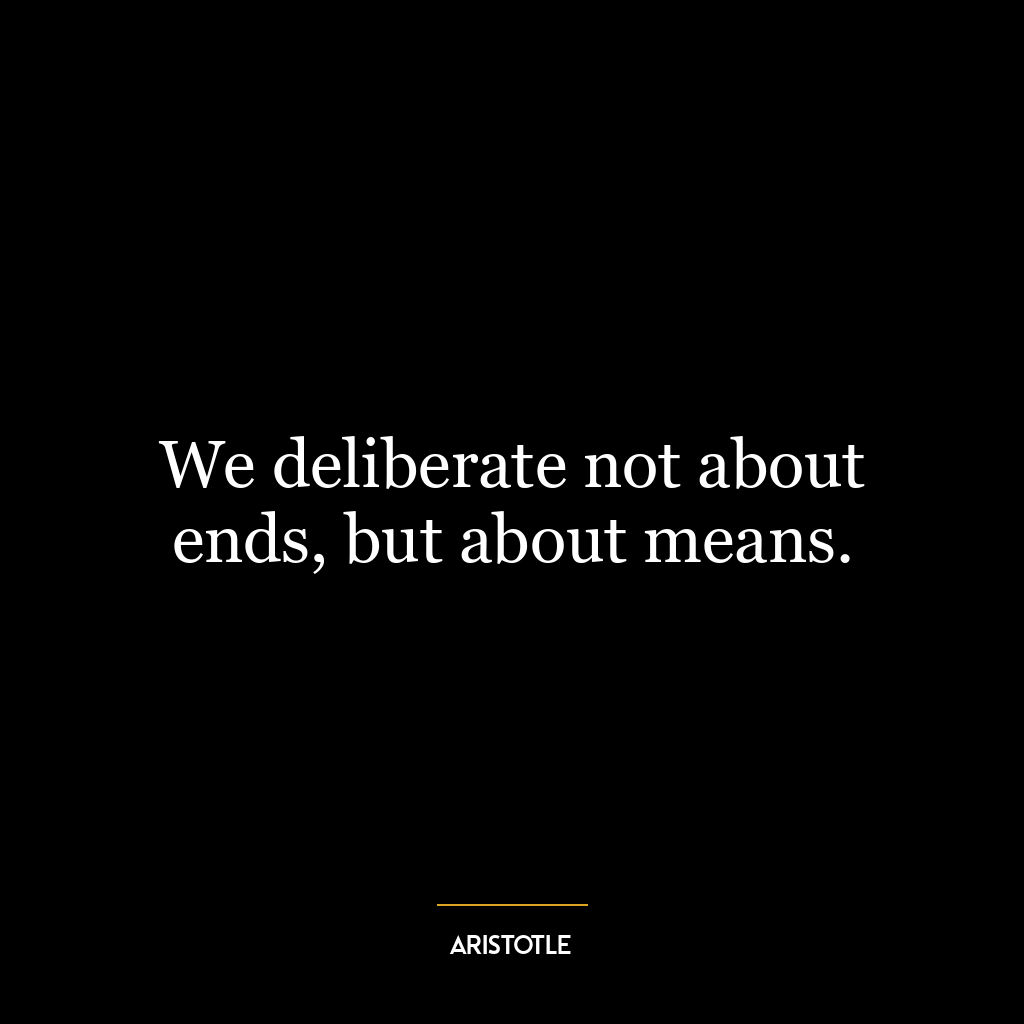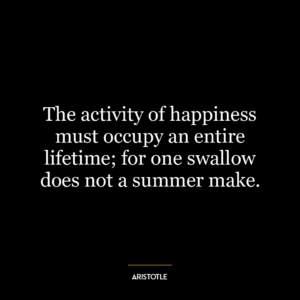“We deliberate not about ends, but about means,” is a profound statement that underscores the essence of decision-making and goal-setting. This quote suggests that the objectives or goals (ends) we aspire to achieve are usually clear-cut and often non-negotiable. However, the methods or strategies (means) we employ to reach these objectives are where deliberation, discussion, and decision-making come into play.
For instance, if one’s goal is to lose weight (the end), the means to achieve it could vary from dieting, exercising, surgery, or even medication. These means are what would be deliberated upon based on their feasibility, potential risks, and benefits. Thus, the ‘end’ is often a given, but the ‘means’ are subject to deliberation.
Applying this concept to today’s world, consider the global objective of reducing carbon emissions to combat climate change. The end goal is clear and agreed upon by most nations. However, the means to achieve this – whether through policy changes, technological advancements, or public awareness campaigns – are widely debated and differ from one country to another.
In personal development, this quote can be applied to any goal-setting scenario. For example, if someone’s objective is to become a successful entrepreneur, that’s their ‘end’. The ‘means’ to achieve this – such as the type of business to start, the necessary skills and education required, the financial resources needed – are the areas where they need to deliberate and make decisions.
In conclusion, Aristotle’s quote emphasizes the importance of focusing on the ‘means’ rather than the ‘end’. It encourages us to invest our time and energy into planning and deciding on the best strategies and methods to achieve our goals, as these are the factors within our control and where our decisions can make a significant difference.












